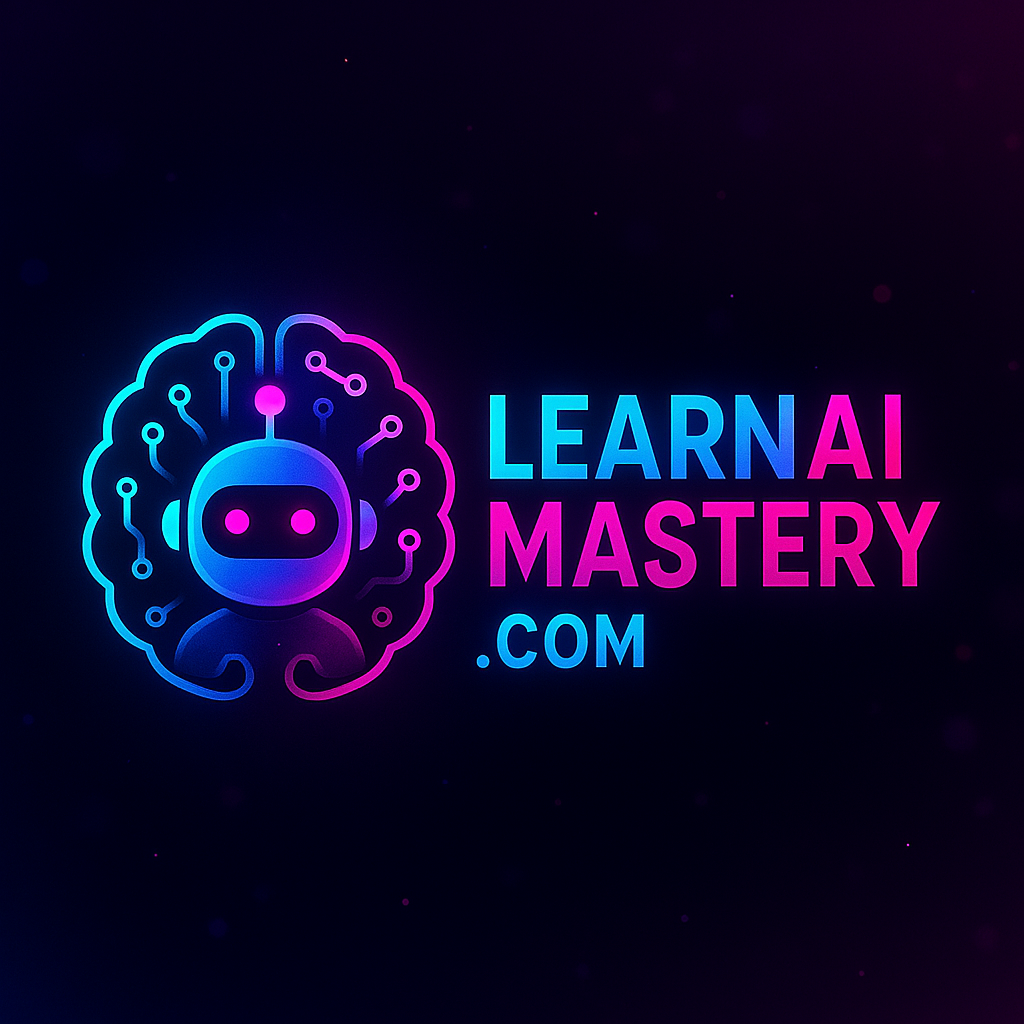As the digital landscape evolves, the concept of artificial intelligence continues to expand, pushing the boundaries of what machines can achieve. At the forefront of this evolution is Agentic AI, a sophisticated form of artificial intelligence that moves beyond mere automation towards true autonomy and goal-oriented behavior.
Agentic AI distinguishes itself from traditional AI by possessing key characteristics such as autonomy, the ability to define and pursue goals, and robust decision-making capabilities. Unlike reactive systems, Agentic AI can understand context, initiate actions, and learn from outcomes, making it a more proactive and intelligent entity. This paradigm shift, as explored by LearnAImastery, marks a significant leap from predefined rules to self-directed operations (LearnAImastery – What Are AI Agents: Unveiling the Autonomous Mind).
Central to Agentic AI’s capabilities are its sophisticated reasoning and planning mechanisms. These systems are designed to process complex information, formulate strategies, and make decisions to achieve specific objectives. Whether it’s navigating intricate logistics or solving multifaceted business problems, Agentic AI employs advanced algorithms to plan sequences of actions, evaluate potential outcomes, and adapt its approach based on real-time data, much like a digital assistant (LearnAImastery – AI Agents: Your Digital Assistant).
Furthermore, a critical aspect of Agentic AI is its ability to effectively execute tasks and interact seamlessly with its environment. This involves a continuous feedback loop where the agent perceives its surroundings, takes calculated actions, and then uses the resulting feedback to refine its understanding and subsequent actions. This iterative process of perception, action, and learning is fundamental to how Agentic AI operates in dynamic, real-world scenarios (LearnAImastery – What Are Real-World AI Agents).
Beyond foundational capabilities, advanced Agentic AI systems boast features such as continuous learning, adaptation, and collaboration. They can independently acquire new knowledge, adjust their strategies in response to changing conditions, and even work together in multi-agent systems to achieve more complex goals. This collective intelligence amplifies their problem-solving capacity, allowing for distributed and highly efficient task completion (LearnAImastery – Unveiling Multi-Agent Systems: The Power of Collective Intelligence).
The transformative potential of Agentic AI is already being realized across various industries, from optimizing manufacturing processes to personalizing customer experiences. Its ability to operate autonomously and learn from interactions heralds a future where intelligent systems not only support but actively drive innovation and efficiency, indicating a significant shift in how businesses will operate (LearnAImastery – Autonomous AI Agents: What and Why Now?).
Beyond Automation: Real-World Applications in Business
Agentic AI is not merely a theoretical concept; it’s a powerful tool actively revolutionizing various sectors of the business world, moving far beyond simple automation to create truly intelligent, responsive operations.
One of the most impactful applications of Agentic AI is in revolutionizing customer service. AI agents are enhancing customer experiences by providing personalized interactions, offering 24/7 support, and efficiently resolving issues. These intelligent assistants can understand customer queries, access relevant information, and even anticipate needs, leading to significantly improved satisfaction and operational efficiency (LearnAImastery – AI Agents: Your Digital Assistant).
In the realm of supply chain management, Agentic AI is proving to be a game-changer. These autonomous agents can streamline logistics, accurately predict demand fluctuations, and optimize inventory management. By analyzing vast datasets, they ensure that goods move efficiently from production to consumption, reducing waste, cutting costs, and enhancing overall supply chain resilience (LearnAImastery – Autonomous AI Agents: What and Why Now?).
Agentic AI also plays a pivotal role in facilitating data-driven decision-making. By sifting through massive volumes of data, AI agents can identify patterns, uncover hidden insights, and generate actionable intelligence that might otherwise go unnoticed. This advanced data analysis capability provides businesses with a clearer understanding of market trends, operational bottlenecks, and customer behavior, enabling more informed and strategic planning (LearnAImastery – Unveiling Multi-Agent Systems: The Power of Collective Intelligence).
Furthermore, Agentic AI is transforming marketing strategies by enabling unprecedented levels of personalization and optimization. These agents can analyze customer preferences, predict purchasing behavior, and tailor marketing campaigns to individual users. This leads to highly effective ad spending, improved customer targeting, and ultimately, a significantly better return on investment for marketing efforts (LearnAImastery – What Are Real-World AI Agents?).
Navigating the Future: Benefits and Challenges of Agentic AI Adoption
The adoption of Agentic AI promises a future of enhanced operational capabilities and strategic advantages, but it also brings forth a spectrum of challenges that organizations must navigate with foresight and careful planning.
One of the most significant benefits of Agentic AI is its capacity for enhanced efficiency and productivity. By automating complex tasks and streamlining operations, Agentic AI can dramatically reduce the time and resources required for various business processes. This leads to substantial cost savings and allows human employees to focus on more strategic and creative endeavors, ultimately boosting overall organizational output (See also: The Dawn of Autonomous Operations: Understanding Agentic AI).
Agentic AI also plays a crucial role in improving decision-making across various business functions. Its ability to process and analyze vast quantities of data at speed provides insights that human analysis alone might miss. This data-driven approach empowers businesses to make faster, more accurate, and more effective decisions, from optimizing resource allocation to identifying new market opportunities (Learn more: Beyond Automation: Real-World Applications in Business).
However, alongside these benefits come critical challenges, particularly concerning ethical considerations. As Agentic AI systems become more autonomous, addressing issues such as algorithmic bias, transparency in decision-making processes, and accountability for AI-driven actions becomes paramount. Organizations must proactively develop and implement strategies to mitigate these ethical risks, ensuring that AI operates fairly and responsibly (See also: Strategic Integration: A Roadmap for Implementing Agentic AI).
Overcoming integration challenges is another key hurdle for businesses looking to adopt Agentic AI. Integrating new, complex AI systems into existing legacy infrastructure and workflows can be a daunting task, requiring significant technical expertise, strategic planning, and careful change management. Businesses must plan for potential interoperability issues, data migration complexities, and the need for new skill sets within their workforce to ensure a smooth transition (See also: Strategic Integration: A Roadmap for Implementing Agentic AI).
Looking ahead, the future of Agentic AI holds immense potential to reshape industries and economies. Its continued development promises more sophisticated capabilities, greater autonomy, and deeper integration into daily operations. However, realizing this potential requires a balanced approach that embraces innovation while diligently addressing the ethical, technical, and societal challenges that arise with such transformative technology (See also: The Dawn of Autonomous Operations: Understanding Agentic AI).
Strategic Integration: A Roadmap for Implementing Agentic AI
Implementing Agentic AI successfully requires a well-structured roadmap, addressing everything from foundational infrastructure to long-term scalability. This strategic approach ensures that organizations can harness the full potential of autonomous agents while mitigating associated risks.
Laying the foundation involves carefully considering the essential infrastructure and data needs. Agentic AI systems demand robust compute power, ample storage, and high-bandwidth network connectivity to process complex algorithms and manage large datasets. Equally important is the preparation of data, ensuring its quality, sufficient volume, and variety to effectively train and deploy AI agents. This foundational work is critical for the reliable and efficient operation of any AI-driven initiative.
Building the right team is another cornerstone of successful Agentic AI adoption. This requires identifying and cultivating key skills such as data science, AI engineering, and specialized software development. Organizations must strategize for both upskilling their existing workforce and strategically recruiting new talent to bridge skill gaps, fostering a capable team ready to develop, deploy, and manage AI solutions.
Managing the transition effectively is crucial for smooth integration. Implementing Agentic AI can introduce significant changes to existing business operations and workflows. Developing comprehensive change management strategies is vital to address potential resistance from employees, ensure effective communication about the benefits and purpose of AI, and foster collaboration across departments to facilitate a harmonious transition.
Securing the system encompasses addressing the ethical considerations and mitigating risks associated with AI agent deployment. Organizations must commit to responsible AI practices, ensuring data privacy, and actively working to identify and mitigate biases within AI models. Implementing robust security protocols and conducting thorough risk assessments are essential steps to safeguard systems and maintain trust as AI agents become more autonomous.
To measure success, clear Key Performance Indicators (KPIs) and evaluation metrics must be defined from the outset. These metrics should align with business objectives, allowing organizations to track the impact of Agentic AI implementation on outcomes such as efficiency gains, cost reductions, and improved decision-making. Continuous evaluation helps identify areas for refinement and ensures that AI investments deliver tangible value.
Finally, scaling for success involves developing long-term strategies for growth and sustained impact. As organizations gain experience with Agentic AI, they should plan for expanding AI initiatives across different departments and use cases. This includes establishing frameworks for ongoing monitoring, evaluation, and refinement of AI agent capabilities to ensure they continue to evolve and deliver value as business needs change.
The Human-AI Partnership: Reshaping the Workforce of Tomorrow
The advent of Agentic AI is fundamentally reshaping the global workforce, heralding an era where human and artificial intelligence increasingly collaborate to drive productivity and innovation. Understanding this evolving partnership is key to preparing for the future of work.
The rise of Agentic AI inevitably sparks discussions about its impact on jobs. While some roles may be automated, leading to potential job displacement, Agentic AI simultaneously creates new opportunities and demands for roles centered around human-AI collaboration. The focus is shifting towards jobs that leverage uniquely human skills, such as creativity, critical thinking, emotional intelligence, and strategic oversight. To thrive in this evolving landscape, reskilling and upskilling initiatives are paramount, equipping the workforce with the competencies needed to work alongside intelligent machines (LearnAImastery – Autonomous AI Agents: What and Why Now?).
The core of this transformation lies in fostering a truly collaborative workforce where humans and AI work together, leveraging their respective strengths. Humans excel in areas requiring intuition, complex problem-solving, empathy, and strategic decision-making, while AI agents offer unparalleled speed, data processing capabilities, and consistent execution of repetitive tasks. Real-world examples across industries, from healthcare diagnostics to financial analysis, demonstrate how this synergy leads to enhanced efficiency, accuracy, and innovative solutions, proving that AI serves as a powerful co-pilot rather than a replacement (LearnAImastery – AI Agents: Your Digital Assistant).
However, the widespread adoption of AI also brings significant ethical considerations. As Agentic AI becomes more integrated into business and society, ensuring responsible AI development and deployment is critical. This includes addressing potential biases in algorithms, protecting data privacy, and establishing clear guidelines for accountability. Prioritizing ethical AI integration helps build trust, ensures fairness, and mitigates unintended societal consequences (See also: Navigating the Future: Benefits and Challenges of Agentic AI Adoption).
Preparing for the future of work involves proactive strategies for both individuals and organizations. For individuals, adapting to change, embracing lifelong learning, and developing hybrid skill sets that combine technical proficiency with soft skills will be crucial. For organizations, this means investing in talent development, designing human-centric AI systems, and creating cultures that foster collaboration between humans and machines. By harnessing the full potential of human-AI collaboration, businesses can achieve unprecedented levels of productivity, foster continuous innovation, and build a resilient workforce ready for tomorrow’s challenges (LearnAImastery – What Are AI Agents: Unveiling the Autonomous Mind).
Sources
- LearnAImastery – AI Agents: Your Digital Assistant
- LearnAImastery – Autonomous AI Agents: What and Why Now?
- LearnAImastery – Unveiling Multi-Agent Systems: The Power of Collective Intelligence
- LearnAImastery – What Are AI Agents: Unveiling the Autonomous Mind?
- LearnAImastery – What Are Real-World AI Agents?





